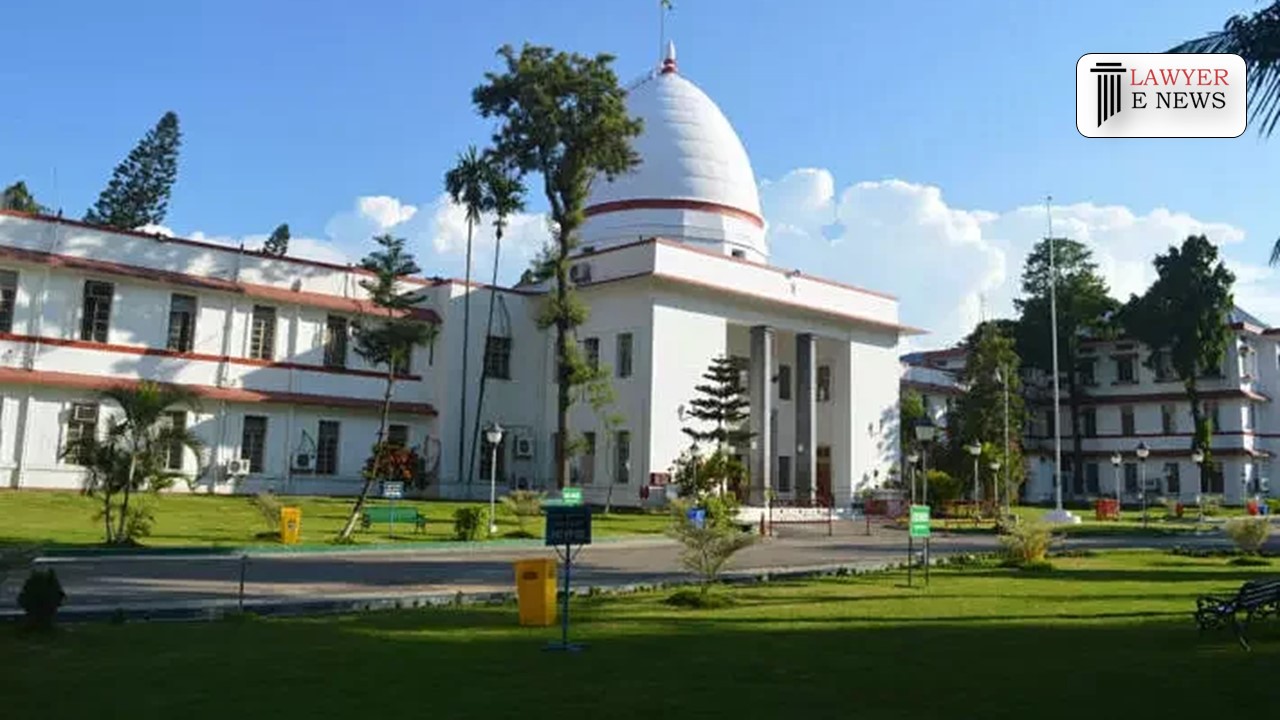-
by Admin
15 February 2026 5:35 AM



The Gauhati High Court has acquitted Abdul Sukkur, who was previously convicted by the Sessions Court for the murder of his wife, Jamila Begum, due to insufficient evidence and procedural lapses. The bench comprising Justices Manish Choudhury and Robin Phukan emphasized the critical need for direct evidence and a complete chain of circumstantial evidence to establish guilt beyond reasonable doubt, ultimately granting Sukkur the benefit of doubt.
Hostile Witnesses and Their Testimonies: The court scrutinized the testimonies of key prosecution witnesses, particularly P.W.2 (Rahima Begum, the daughter of the accused and the deceased), P.W.3, and P.W.5, who were declared hostile. These witnesses did not support the prosecution’s case during the trial. The High Court noted, “The prosecution failed to confront these witnesses with their previous statements recorded under Section 161 CrPC to prove contradictions,” thereby weakening the case against Sukkur.
Evaluation of Circumstantial Evidence: Addressing the reliance on circumstantial evidence, the court reiterated established legal principles: “The prosecution must establish a complete and unbroken chain of events leading to the accused’s guilt. The evidence must be consistent only with the hypothesis of guilt and exclude any possibility of innocence.” In Sukkur’s case, the chain of circumstantial evidence was found incomplete, and there were significant gaps that did not conclusively point to his guilt.
Lack of Direct Evidence: The court observed that none of the prosecution witnesses directly witnessed the murder or any assault by Sukkur. The evidence primarily comprised post-occurrence witnesses who arrived after the incident. The court remarked, “Suspicion, however strong, cannot replace proof beyond reasonable doubt,” highlighting the necessity for concrete and unequivocal evidence to sustain a conviction.
The High Court emphasized that for a conviction in cases based on circumstantial evidence, the prosecution must eliminate any reasonable hypothesis of innocence. In this case, the prosecution’s failure to establish a complete chain of events and the lack of direct evidence led to Sukkur being granted the benefit of doubt. The court concluded that the explanation provided by Sukkur during his examination under Section 313 CrPC was plausible and not contradicted by any substantial evidence.
Justice Choudhury, in delivering the judgment, noted, “The previous inconsistent statements of hostile witnesses cannot be used to contradict the witnesses without proper confrontation. The failure to follow this procedure undermines the credibility of the prosecution’s case.”
The acquittal of Abdul Sukkur underscores the High Court’s adherence to the principle that guilt must be proven beyond reasonable doubt, especially in cases relying on circumstantial evidence. This judgment is expected to have significant implications for future cases, emphasizing the importance of thorough and procedurally sound investigations. By setting aside the conviction, the court has reinforced the judiciary’s commitment to ensuring that justice is served based on credible and sufficient evidence.
Date of Decision: 22nd May 2024
Abdul Sukkur vs. State of Assam
